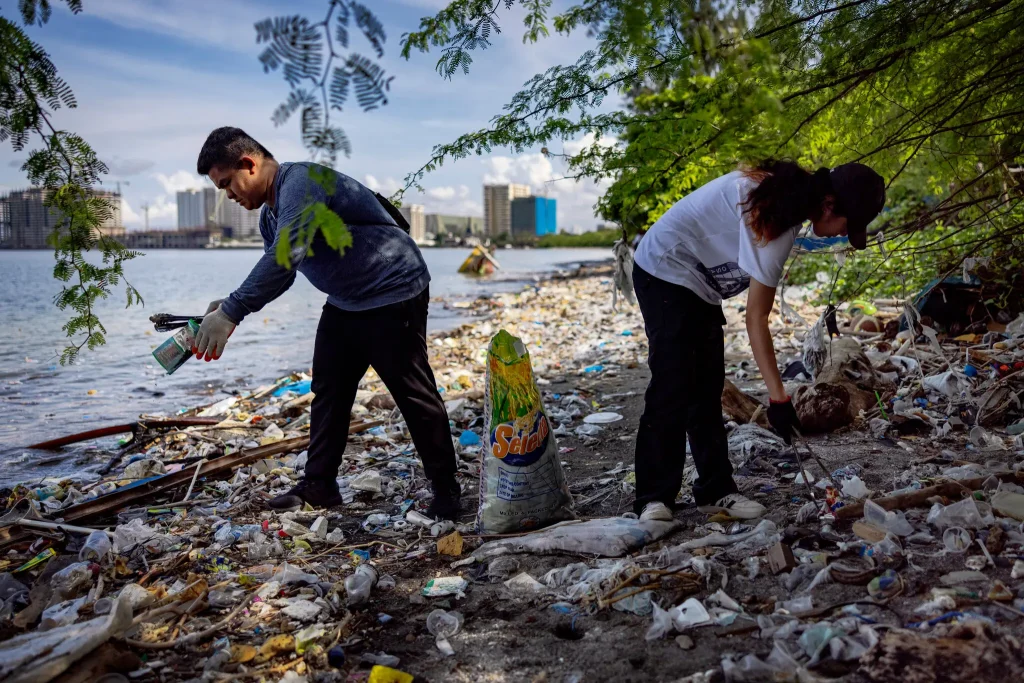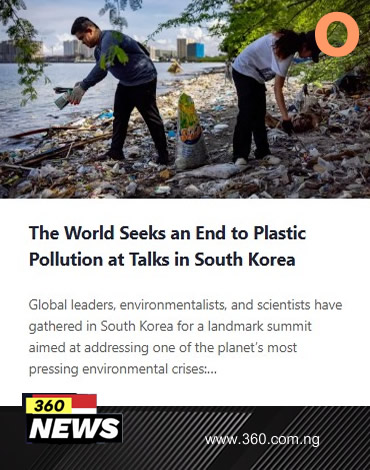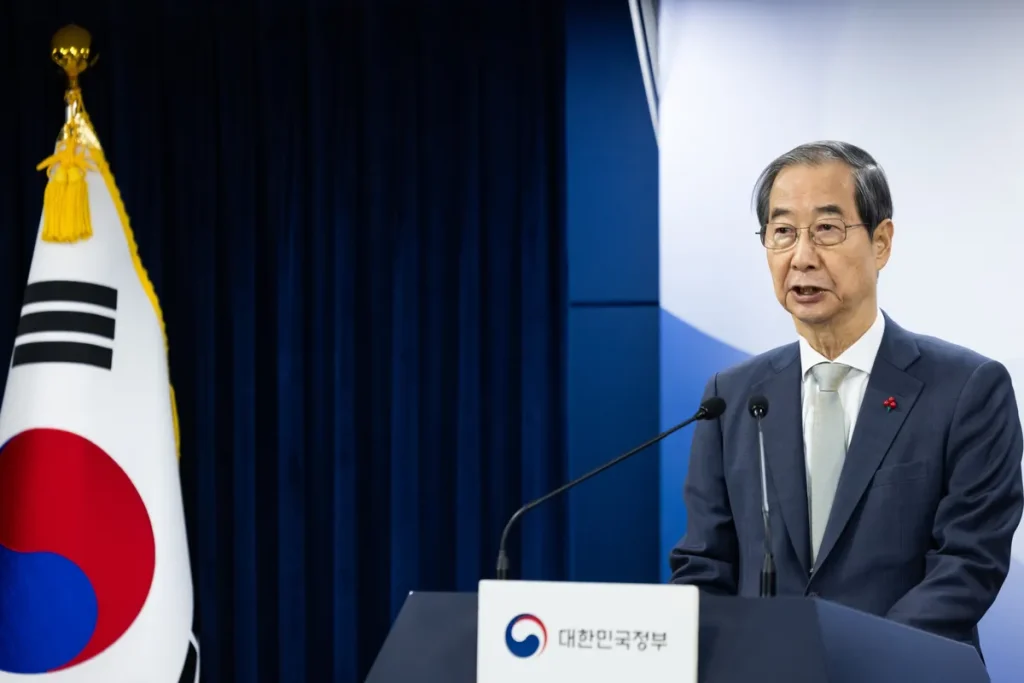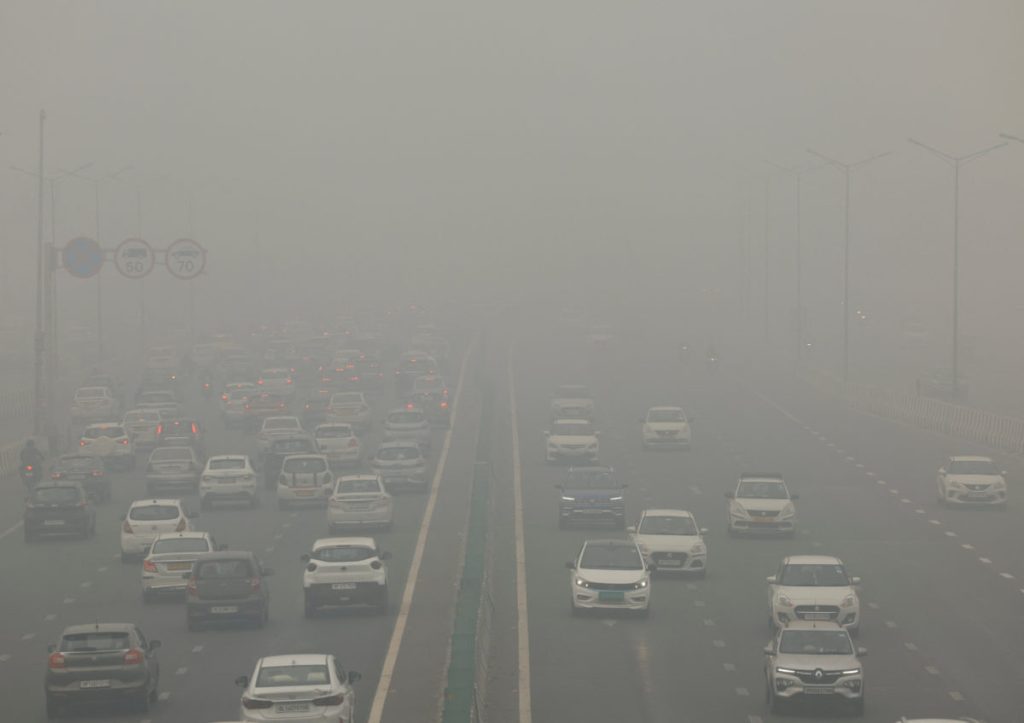The World Seeks an End to Plastic Pollution at Talks in South Korea

Global leaders, environmentalists, and scientists have gathered in South Korea for a landmark summit aimed at addressing one of the planet’s most pressing environmental crises: plastic pollution.
The event, which brings together stakeholders from governments, non-governmental organizations, and the private sector, marks a significant step toward a unified global effort to tackle plastic waste.
As plastic pollution continues to wreak havoc on ecosystems, wildlife, and human health, the international community is under increasing pressure to find solutions.
The talks, held in the South Korean capital of Seoul, are part of ongoing discussions to develop binding international agreements and strategies for reducing plastic pollution.
The gathering reflects growing recognition of the devastating impact of plastic waste on the environment and the urgency required to address the issue on a global scale.
The Global Plastic Crisis
Plastic pollution has become one of the most visible and harmful consequences of the modern consumer economy. Every year, millions of tons of plastic waste enter the oceans, harming marine life and contaminating ecosystems.
Experts estimate that by 2050, the oceans could contain more plastic by weight than fish if current trends continue. Marine species, from small plankton to large whales, are affected by ingesting or becoming entangled in plastic debris.
On land, plastic waste accumulates in landfills, taking hundreds of years to decompose and releasing toxic chemicals into the environment.
The problem is not confined to marine and terrestrial environments but extends to human health. Microplastics, tiny particles of plastic broken down over time, have been found in drinking water, food, and even the air.
The presence of microplastics in the human body raises serious concerns about potential health risks, including cancer, endocrine disruption, and other chronic conditions.
The need for a global response has never been clearer. Countries around the world are grappling with the challenge of plastic waste, from developing nations with limited waste management infrastructure to highly industrialized countries facing the growing environmental toll of consumer plastic products.
South Korea’s Role in Global Plastic Talks
South Korea, known for its technological innovation and strong environmental policies, has taken a leadership role in organizing and hosting the international summit.
The country has already made significant strides in addressing plastic pollution within its borders, including implementing policies to reduce single-use plastics and improve recycling rates.
The South Korean government has set ambitious targets for reducing plastic waste, such as phasing out single-use plastics in the coming years and promoting sustainable alternatives.
South Korea’s efforts to tackle plastic pollution serve as a model for other countries, especially in Asia, where plastic consumption is rapidly rising due to population growth and economic development.
The summit in Seoul provides a platform for sharing successful policies, exchanging best practices, and fostering international collaboration to combat plastic pollution.
The goal is to create a global framework that will help nations reduce plastic waste and adopt sustainable alternatives across industries, from manufacturing to packaging and retail.
International Cooperation for a Unified Solution
One of the central themes of the summit is the need for global cooperation to address the plastic pollution crisis. While many countries have taken individual steps to curb plastic use, there is a growing consensus that coordinated action is essential to tackle the issue effectively.
Leaders at the summit are discussing proposals for international agreements that would establish common standards for plastic production, use, and disposal.
A key proposal is the creation of a global treaty or legally binding agreement that would regulate plastic production and set targets for plastic waste reduction.
This treaty could include provisions for reducing plastic production in certain industries, increasing the use of recycled materials, and promoting alternatives such as biodegradable plastics.
Governments are also exploring ways to incentivize businesses and industries to adopt sustainable practices, including offering financial support for the development of eco-friendly packaging and incentivizing recycling efforts.
Public-private partnerships will be crucial in driving innovation and supporting businesses that are committed to reducing their plastic footprint.
The Role of the Private Sector and Innovation
The private sector has a significant role to play in addressing plastic pollution. Many companies have already pledged to reduce their plastic waste and increase the use of recyclable or biodegradable materials in their products.
Leading global corporations in the food and beverage, retail, and technology industries have set ambitious goals for eliminating single-use plastics and transitioning to more sustainable alternatives.
However, experts agree that these voluntary commitments alone will not be enough to solve the problem. Government regulation is seen as a necessary step to hold industries accountable and ensure that the transition to a circular economy, where plastics are reused and recycled rather than discarded, becomes a reality.
The private sector must also invest in innovation, developing new materials and technologies that can help reduce the environmental impact of plastic.
Challenges and Hopes for the Future
Despite the momentum generated by the summit and the growing global awareness of plastic pollution, several challenges remain.
One of the biggest hurdles is the need for effective waste management systems in developing countries, where plastic waste is often mismanaged or not collected at all.
Additionally, the global supply chain for plastic production is vast and complex, making it difficult to regulate and control plastic waste at every stage of its lifecycle.
There are also concerns about the economic impact of transitioning away from plastic, particularly in industries where plastic is integral to product design and packaging.
For instance, the pharmaceutical, food, and beverage sectors are heavily reliant on plastic for packaging and distribution, and finding suitable alternatives that are both effective and affordable remains a significant challenge.
Nevertheless, the summit has inspired optimism about the possibility of creating a more sustainable future. Leaders in the room have emphasized the importance of acting quickly, stating that the window for addressing plastic pollution is rapidly closing.
With continued international cooperation and innovation, the hope is that plastic pollution can be significantly reduced over the coming decades.
As the talks continue in South Korea, the world is watching closely to see if a unified, binding agreement can be reached to end the plastic pollution crisis.
The potential for positive change is enormous, and if countries can work together to reduce plastic waste, it could lead to cleaner oceans, healthier ecosystems, and a safer planet for future generations.
For now, the success of the summit will depend on the commitment of all parties involved to follow through on the promises made and implement concrete actions that will reduce plastic production and waste.
The world’s collective fight against plastic pollution is only just beginning, but the talks in South Korea represent an important step forward in the global effort to secure a cleaner, more sustainable future.
Picture News







